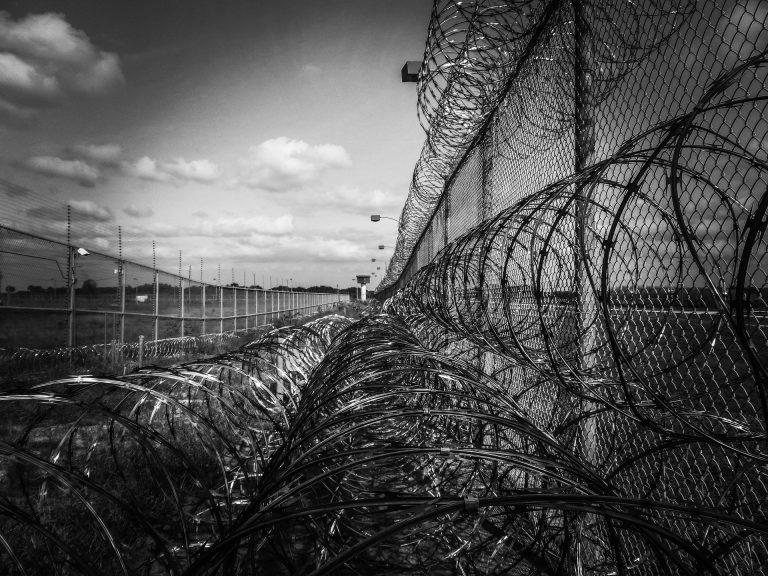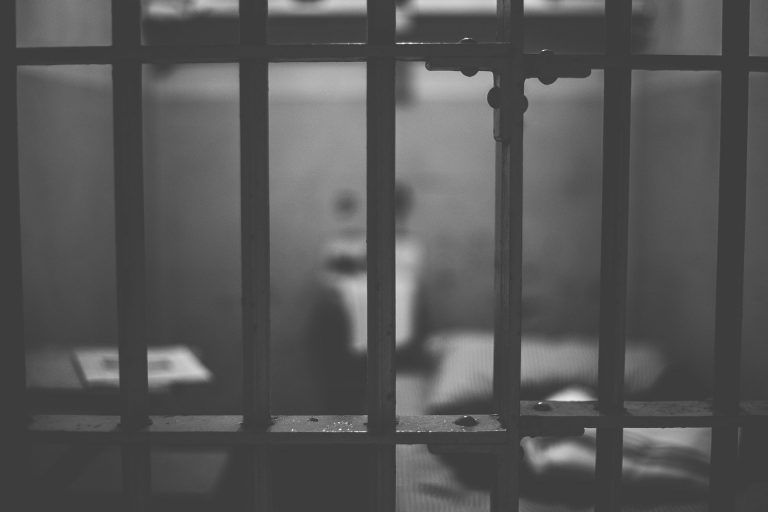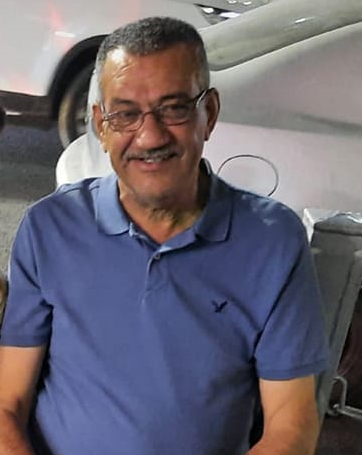

This conversation was conducted with Milena Ansari, the International Advocacy Officer at Addameer Prisoner Support and Human Rights Association.
Addameer Prisoner Support and Human Rights Association is a Palestinian non-governmental human rights organisation that works to support and advocate on behalf of Palestinian political prisoners held in Israeli and Palestinian prisons. Addameer provides free legal aid to prisoners and advocates on their behalf on a national and international level. It works to put an end to the various violations of prisoners’ rights through monitoring, legal procedures and solidarity campaigns.
Kamal Abu Waer is a 46-year-old Palestinian man, who was incarcerated in Israeli prisons since 2003. While in prison, he was diagnosed with vocal cord cancer and faced medical neglect by Israeli prison services during his sickness. When he was finally allowed to attend treatment in a hospital, he was always cuffed by his hands and feet to the hospital bed. Kamal’s health continued to deteriorate until he passed away in 2020. Occupation forces still withhold his body and refuse to give it to his family for a proper burial, as form of torture to his family.
Kamal is one of four Palestinian prisoners who died inside Israeli prisons in 2020 alone, as a result of deliberate medical negligence.
Today, there are 4,550 Palestinian political prisoners (including 170 children and 32 women) currently being held in Israeli occupation prisons. Of these, 500 are sick prisoners, 200 of whom suffer from chronic illnesses.1 These activists end up in prison often due to military orders ordered by the Israeli occupation orders, with the main goal of controlling Palestinian civilians. Palestinian prisoners are prosecuted with exaggerated sentences and high fines.
Currently, there are 500 Palestinian detainees who are under administrative detention without trial or charges. The administrative detention policy allows the Israeli occupation to detain Palestinians based on secret information that is not provided to the detainees or their lawyers. Under this policy, Palestinians could be detained for an indefinite amount of time.
There are 17 Israeli occupation prisons in which Palestinian prisoners are incarcerated. Only one prison is located inside the Occupied Palestinian Territory (OPT), the other 16 are located outside the OPT. This is illegal under international law, as it is considered a forcible transfer of occupied people outside of the occupied territory.
Palestinian prisoners endure extreme incarceration conditions in overcrowded and narrow prison rooms. Prison rooms retain humidity, and lack any source of natural ventilation or light. Prisoners suffer from cold and hot weathers in winter and summer respectively. They are only provided with thin blankets throughout the year, and no source of air conditioning. They are not provided with sufficient food. Necessary food items are only provided in food canteens that prisoners have to purchase from their own pockets, at double the regular prices outside of prisons.
The prisoners face tear gas and pepper spray attacks, harsh beatings, forced physical positions for prolonged hours, and sleep deprivation. Psychological torture and ill-treatment include verbal assaults and threats of arresting and torturing family members. Women prisoners also face compounding gender abuses by the occupation forces, who often leverage their needs for feminine products during interrogation as a pressure tool.

Israeli prison forces deliberately use medical negligence as a torture and pressure tool on Palestinian prisoners to elicit confessions. This is done by denying medical tests and treatments, and withholding vital medical information.
The Ramleh prison clinic is where most sick Palestinian prisoners are transferred to. However, the name ‘clinic’ is not appropriate, as there are very few medical staff and a lack of medical equipment. Prisoners there are not provided with proper diagnosis or treatment. In many cases, the clinic only offers pain killers, regardless of the prisoners’ diagnosis, which often worsens their health condition. Those who are very sick are transferred to Israeli civilian hospitals, but this transfer requires long delays and repeated permit requests from prisoners or organisations such as Addameer, which are not always granted.
Amal Nakhleh and Jamal Zaid are two detainees who are currently victims of this medical negligence. Amal Nakhleh is a 17-year-old boy, who suffers from myasthenia gravis, a rare autoimmune disease. Amal requires regular monitoring and medications, and he is being denied medical care.
Jamal Zaid, who was detained in September 2021, suffers from kidney failure. He requires daily kidney dialysis and was not provided the needed medical care during his detention. Both Amal and Jamal are under administrative detention, which means that Addameer is not able to provide them with legal support, as there are no charges against them nor ongoing trials.


Local and international medical associations can interfere and must have a responsibility to provide the necessary healthcare service to all individuals requiring it regardless of their background or race. Pressure must be put on medical staff to abide by their ethical principles, and to refuse the ill-treatment of and medical neglect of Palestinian prisoners.
Unfortunately, the constant legal efforts of human rights organisations like Addameer often remain challenged within the current Israeli judicial system. In order to fully prevent this deliberate medical negligence towards Palestinian prisoners, it is essential to tackle the root cause of the problem. The conditions of Palestinians, including prisoners, will only improve if the Israeli occupation of Palestine ends.
The silence of the international community, including organisations and states towards Israeli crimes, has allowed Israel this impunity. States of power must take action and hold Israel accountable for its crimes under international law. This is the only way for Palestinians to seek justice, reach their basic human rights, and live dignified and healthy lives.
Learn how you can support Palestinian political prisoners through contacting Addameer here.
You can also join Addameer’s campaign to Stop Administrative Detention!
1. Addameer. Statistics. 2021. https://www.addameer.org/statistics. Accessed 15 December 2021.
More from Rasha Kaloti here.
BCPHR.org was designed by ComputerAlly.com.
Visit BCPHR‘s publisher, the Boston Congress of Public Health (BCPH).
Email [email protected] for more information.
Click below to make a tax-deductible donation supporting the educational initiatives of the Boston Congress of Public Health, publisher of BCPHR.![]()
© 2025-2026 Boston Congress of Public Health (BCPHR): An Academic, Peer-Reviewed Journal
All Boston Congress of Public Health (BCPH) branding and content, including logos, program and award names, and materials, are the property of BCPH and trademarked as such. BCPHR articles are published under Open Access license CC BY. All BCPHR branding falls under BCPH.
Use of BCPH content requires explicit, written permission.